- About Us
-
Who we are
-
- Publications
-
- ADPC Academy
-
MediaADPC'S NEWS
Celebrating World Environment Day 2021 Celebrating World Environment Day 2021
5 Jun 2021
Bangkok, Thailand

Ecosystems are fragile to environmental shocks. Climate change is one such example that affects ecosystems due to changes in regular weather and climate patterns creating compound effects through droughts, floods, heatwaves, etc. In this context, our actions can lead to gradual or rapid environmental loss that in turn complicates our efforts for restoration.
This year's observance of World Environment Day focuses on the theme 'Reimagine. Recreate. Restore' and urges the international community to change from exploiting nature to healing it. After all, only through healthy ecosystems can we prevent the impacts of disasters and climate change, protect and enhance livelihoods and counteract climate change.
ADPC commemorates World Environment Day by raising awareness on its capacity building efforts across Asia and the Pacific region to help governments and communities nurture their nature. Start your learning journey below!
Understanding climate change and adaptation in South Asia
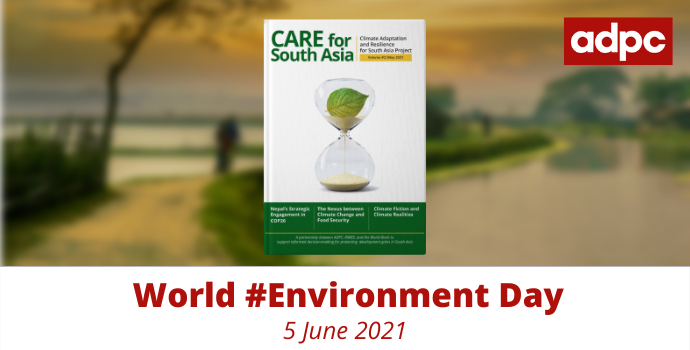
ADPC through its Climate Adaptation and Resilience (CARE) for South Asia project recently published the second volume of its quarterly newsletter.
The second issue provides readers with a set of articles on the Government of Nepal's plans to engage with various stakeholders before and during COP26, the nexus between climate change and food security in South Asia, challenges and opportunities in Nepal's water management sector, building better roads in Bangladesh, and women leaders who adopt climate-smart agricultural practices in Pakistan to sustain their livelihoods.
New features include a section that breaks down different climate change jargon and a forum on climate-fiction movies and novels! Download and read here.
Supporting resilient and sustainable farming
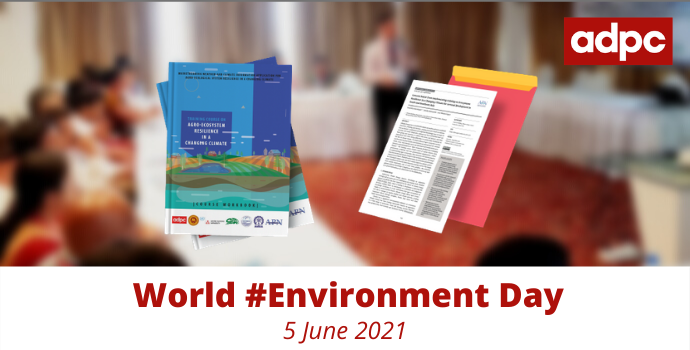
From 2017-2019, ADPC implemented the 'Mainstreaming Weather and Climate Information Application for Agro-Ecosystem Resilience in a Changing Climate' project to enhance agro-ecosystem resilience in Nepal, Sri Lanka, Thailand and Viet Nam.
The training reached 150 professionals working in agriculture, water and climate change across South and Southeast Asia. The training courses stimulated discussions on improving agricultural livelihoods while enhancing agro-ecosystem services and functions with consideration to different country and ecosystem factors. Group work and brainstorming exercises also helped participants understand the links between climate change, climate risk management and project formulation.
ADPC launched a workbook in 2017 that spells out a detailed training course on Agro-Ecosystem Resilience in a Changing Climate and also submitted a peer-reviewed journal on 'Lessons learnt from implementing an Ecosystems Resilience in Changing Climate training for mainstreaming weather and climate information for sectoral development in four countries of South Asia and South East Asia'.
Discover more about the different factors, training needs and content covered in Sri Lanka, Thailand and Viet Nam!
Promoting nature-based solutions for landslides
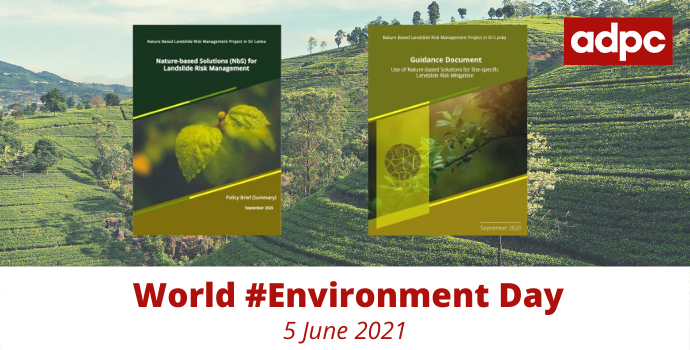
While human-designed solutions are effective, nature-based solutions (NbS) are the most sustainable to mitigate disasters, climate change and harm to ecosystems. During its Nature-based Solutions for Landslide Risk Management (NBLR) project, ADPC developed a Policy Brief that summarizes the background, advantages, application aspects, and major challenges of NbS application for landslide risk management.
The project also contributed to the development of a Guidance Document that aims to help professionals involved in landslide risk management activities (scientific staff, practitioners and staff at relevant local authorities) develop appropriate and sustainable interventions.
Localizing disaster preparedness and eco-friendly initiatives
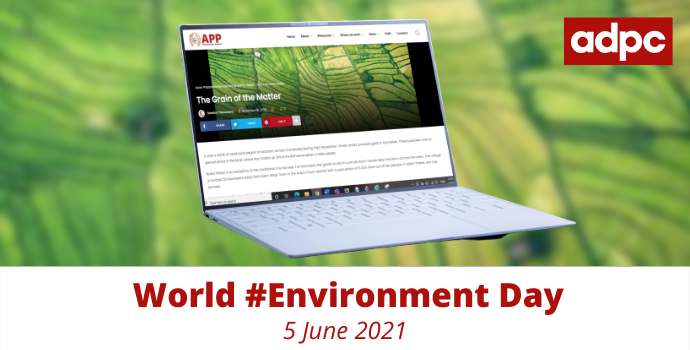
Rice paddies make up three-fourths of all cultivated land in Cambodia, where 30% of the total area is dedicated to agriculture. The agricultural sector has significantly advanced during the beginning of the century, lifting 4 million people in the country out of poverty.
Nevertheless, Nokor Pheas faces droughts and flash floods as a result of deforestation and forest clearance for plantation. The lack of agricultural productivity has forced many families into food shortages or the decision to migrate.
Through its Asian Preparedness Partnership (APP) program, ADPC caught up with Ms. Chheun Kimsean, a council member of her village's Commune Committee for Disaster Management (CCDM), on the outcomes of her training conducted by APP's country partners and her efforts to localize sustainable agricultural practices and disaster risk management initiatives. Read her full story here.
Mainstreaming real-time satellite data
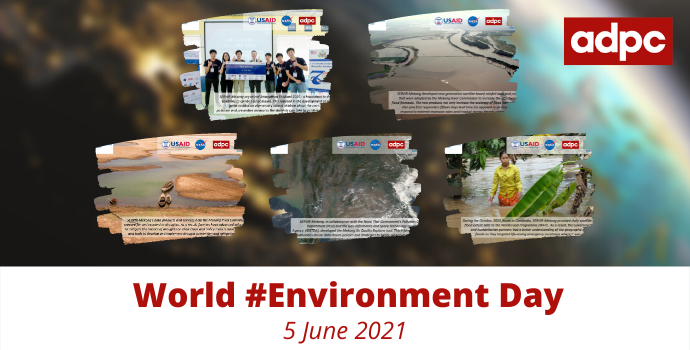
Keep checking ADPC's social media pages for the next few days as we bring you bite-sized information about various activities from our SERVIR project
Featured activities will range from drought monitoring tools in the Lower Mekong area, real-time flood satellite data in Cambodia, supporting young innovators to combat air pollution in Thailand, launching the Mekong Air Quality Tool, and improving flood forecasting by up to fifteen days in advance.
Latest NewsRelated Trainings
-